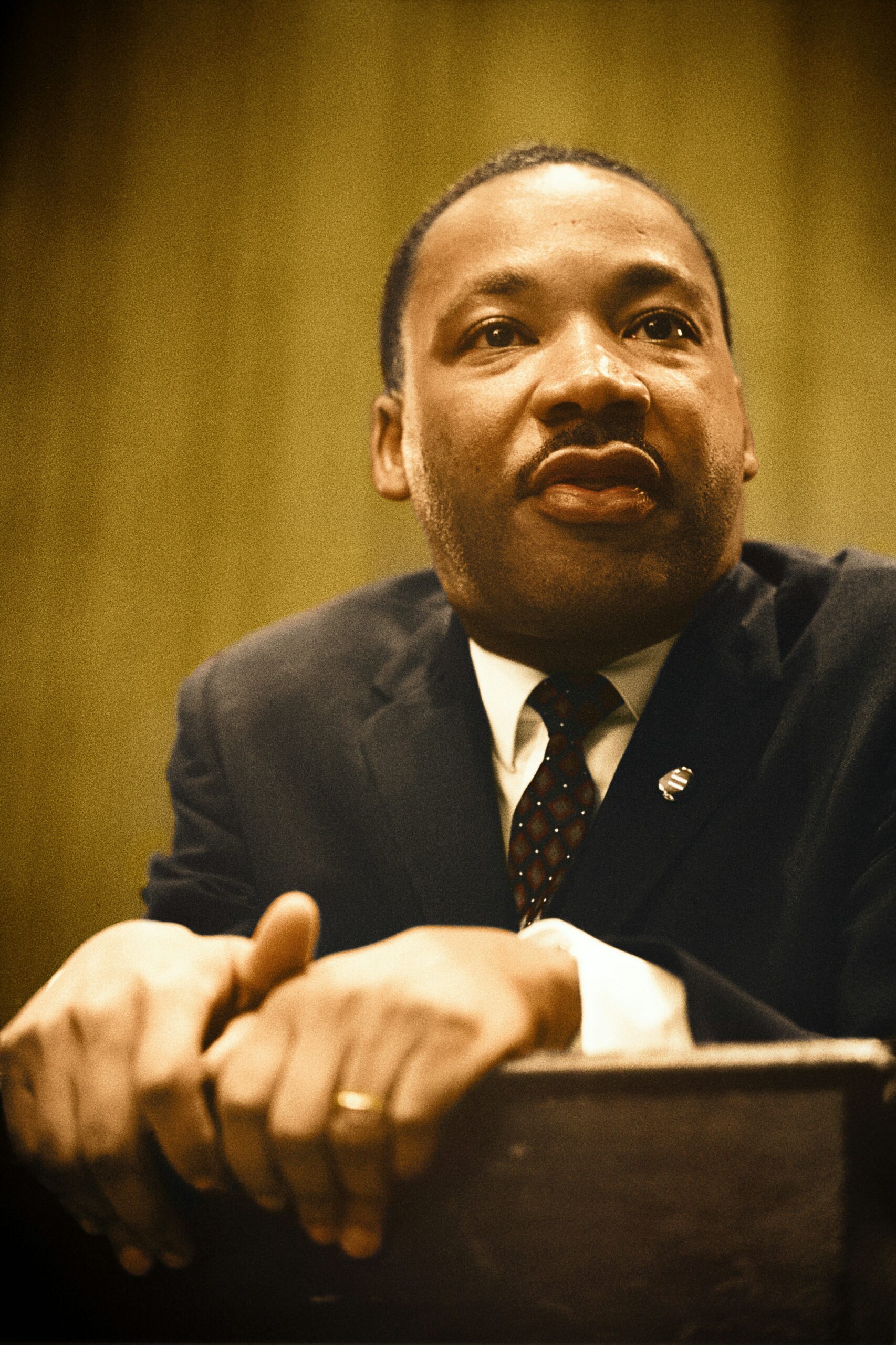Image: via unseenhistories on Unsplash.jpg
Martin Luther King Jr. was assassinated on April 4, 1968. Despite being the face of racial equality, the way that he is taught in modern schools and portrayed in the media is disrespectful and a misrepresentation of his true nature.
People nowadays recognize King as a beloved face of peace and racial justice, not just in the U.S., but throughout the entire world. However, this popularity did not exist while he was alive. According to a Gallup poll conducted in 1966, just two years before his death, King was found 63% unfavorable by the American people, with 39% giving him a -5, the least favorable score on the rating. In 2011, King’s favorability was once again tested by Gallup, and he was found 94% favorable, with 69% rating him a 4 or 5, the highest ranks on the poll.
This swing in favorability may cause some to question how King’s rating has changed drastically in just under 50 years: the reason is because the way he is viewed by the public is different than when he was alive. The media continues to portray what they would deem is an idealized, socially acceptable version of Dr. King. When a prominent figure who stood up for justice against an oppressive system is silenced, they are, at the time, vilified, scorned and hated by the public. But as time passes, the public perception of that person may change, or their narrative alters, and they are lifted up as a hero. This was the case for many civil rights activists, from Ida B. Wells to Malcolm X. This trend will most likely continue for the near future until all social unrest is extinguished.
Most Americans are familiar with King’s “I have a Dream” speech, where he calls for equality amongst the American people. This speech is so popular because it calls for peace amongst everyone and has a message of ending racism and segregation, and became one of the most iconic speeches in history. However, one of his most powerful and relevant pieces of works, “Letter from Birmingham Jail,” deserves to be just as remembered and known as much as his “I have a Dream” speech. Dr. King had been arrested in Birmingham, Alabama after participating in a nonviolent demonstration against segregation. He writes this letter, the “Letter from Birmingham Jail,” in response to eight white religious leaders who stated that his actions were “unwise and untimely.”
King’s response to their statement still, unfortunately, has merit to the social issues that plague our nation today. King writes that these religious leaders are dissatisfied with the peaceful demonstrations, yet “[their] statement did not express a similar concern for the conditions that brought the demonstrations into being.” King continues later in the letter saying that the biggest hurdle faced by African Americans “is not the White Citizens Council or the Ku Klux Klanner but the white moderate who is more devoted to order than justice.” He describes these moderates as those who agree with the goal, but disagree with the methods used to reach the goal, or to “wait for a more convenient season.” King later wrote that, “shallow understanding from people of good will is more frustrating than absolute misunderstanding from people of ill will.” This “white moderate” can be seen in today’s world. When a civil rights protest occurs and it turns violent, the news will only cover and present the story as such, glossing over the fact as to why the protest exists in the first place, causing more people to antagonize the group seeking rights. Politicians will demand for social reform while simultaneously condemning those who protest.
While King is best known for civil rights, this is far from the only subject he discussed. Another one of his more overlooked speeches, “Beyond Vietnam,” also has relevance to Americans today. After the Civil Rights Act of 1964 was passed, Dr. King turned his attention to other areas, including the Vietnam war and economic inequality. King was vehemently against the war due to it causing the shutdown of many social programs which would have helped many impoverished Americans. He made comparisons between the plight of the Vietnamese to those of African Americans in the United States, stating famously that, “the greatest purveyor of violence in the world today — my own government.” He correctly stated that the enemy of both groups was the United States government. King felt that it was his diligence to fight for the rights of not only his people, but of people across the planet, and spoke out against America’s imperialistic and militant actions. He went into detail on how America was destroying the people of Vietnam, saying,
“What do the peasants think as we ally ourselves with the landlords, and as we refuse to put any action into our many words concerning land reform? What do they think as we test out our latest weapons on them, just as the Germans tested out new medicine and new tortures in the concentration camps of Europe?’
Despite opinions on the Vietnam War being mixed in today’s society, King is almost never mentioned when it comes to condemning the war. This is due to the necessity to also include his denouncement of America. Since the end of the war, America has continued to be complicit in committing mass human rights violations as well as crimes against humanity when it comes to the United States “fixing” other nations.
In honor of the 56th anniversary of his assassination, Martin Luther King Jr.’s legacy and impact on a wide array of social issues should be remembered and celebrated. His ideologies and insight still hold true to this day, and many can learn from what he taught.
Geoff Soland is a third-year History major with minors in Journalism and Museum Studies. GS1003383@wcupa.edu

